Nothing can get more crony than neoliberal and anti-people economists as the nation’s budget managers and economy chiefs, not to mention a Marcos loyalist and mouthpiece as the “little president.” Add to that a widely criticized former UP professor who drew flak for being anti-student.
This is the second part of the Budol: Unsubtle Crony Traits series. Swipe left (or right), up and down as Marcos’ cabinet proves to be of service — to the Marcoses.
Executive Secretary
Mr. Vic Rodriguez is Ferdinand Marcos Jr.’s former chief of staff and official spokesperson. He is also the president of the Quezon City Trial Lawyers League and a managing lawyer at Rodriguez & Partners Law Firm. As an alumnus of the University of Santo Tomas (UST), Rodriguez served as the Integrated Bar of the Philippines’ Deputy General Counsel.
The Executive Secretary is in charge of directly supporting the President in the administration and management of the Government of the Republic of the Philippines’ affairs and functions. Entasked to put presidential commands, orders, and judgments into action, Rodriguez shall continue his duties and service to the president.
Dubbed as the “little president,” Rodriguez will wag his enthusiastic tail as he ensures clear dissemination of Marcos, Jr.’s pronouncements, proving his loyalty to the dictator’s son. This appointment came as no surprise as Rodriguez has been a devoted defender of Marcos, Jr., especially regarding controversies surrounding the ill-gotten wealth of the Marcoses and the human rights abuses during the Martial Law era.
Rodriguez has largely been the face of Marcos, Jr.’s campaign, especially with him speaking for the dictator’s son on several occasions and absences in debates. Rodriguez has likewise maligned conscious reactions to elephant-in-the-room issues surrounding the Marcoses, particularly during a press conference wherein journalist Lian Buan asked a question regarding the Marcoses being banned in the US which he ignored.
Serving as Marcos, Jr.’s mouthpiece, Rodriguez’s clear diversion tactics in anti-Marcos sentiments or critical reportage of the Marcoses will surely heighten during the foreboding Marcos, Jr. administration. He will serve as a vital vessel in ensuring the “right,” pro-Marcos information is peddled to false, state-backed propagandists and “journalists.” In simpler terms, Rodriguez is part-and-parcel to the Marcoses’ disinformation machinery.
Department of Finance (DOF)
Benjamin Diokno will be leaving his post as Bangko Sentral ng Pilipinas (BSP) Governor to head the Department of Finance under the Marcos Jr. administration. He is not a stranger to handling Philippine economics as he served as Budget Secretary during the Estrada administration and was also appointed to the same post by President Rodrigo Duterte from 2016 to 2019. He is a professor emeritus of the UP School of Economics and has also served as its former dean.
Diokno is reported to be the highest-paid government official in 2021, having served as the BSP governor. His income amounted to over P40.8 million.
As secretary of the Department of Finance, he will oversee the management of the government’s financial resources by formulating policies that will ensure the funding of important government programs and will help in economic growth and stability. In a statement last May 26, Diokno said, “I will strive to continue prudently and carefully balancing the need to support economic growth, on one hand, and to maintain fiscal discipline, on the other.”
Among his primary proposals is the revival of the PPP project, a neoliberal venture of the PNoy administration likewise supported by appointed NEDA chief, Arsenio Balisacan. For Diokno, the PPP will allegedly “finance big-ticket projects.” As it can be noted, the PPP project is also established to attract foreign investors and “strengthen trade relations” with the country. Diokno likewise asserts to maximize earlier amendments made in the Public Service Act (PSA) which allows foreign entities to fully take ownership over services such as telecommunications and railways, in the guise of “saving the ailing economy.”
Related: https://bit.ly/3ynEhJI
As such, Diokno highlights that public infrastructure will remain a priority in the incoming Marcos II regime, allowing it to take up 5% of the country’s gross domestic product (GDP).
Aside from onerous foreign-oriented policies, Diokno proposes to pass the burden of paying off Duterte’s record-high debt by imposing taxes even on basic necessities and services. For instance, Diokno is also eyeing the imposition of taxes on digital transactions and streaming services such as Netflix and Spotify.
“Right now, if these [streaming services] can evade taxes, why not tax it?… And who can afford Netflix? It’s not the poor. So, they can afford it,” he said in an interview with GMA News.
A 12% VAT on digital services is part of the proposed tax reforms by the incumbent Finance Secretary Carlos Dominguez III as part of a fiscal consolidation plan. The House of Representatives has already approved the bill seeking to impose the 12% VAT and is only awaiting the Senate’s approval.
Putting two and two together, Diokno underestimates the current debt President Duterte will pass down to Marcos, Jr. To Diokno, the increase in the national debt was necessary, and it can gradually be paid off in the tax reform policies to be implemented under Marcos, Jr.’s administration.
By tax reform policies, yes, it means passing down the burden on the people as Diokno regards taxation on products such as tobacco and sugary products, and the aforementioned imposition of taxes on digital services to contribute to paying off the said debt. This, while corporations and foreign investors are provided incentives, such as tax cuts, and easier access to extract more profit.
If there is anything foreseen under Diokno’s anti-people economics, it is that more burdens will be placed on the people while private firms and foreign corporations reap benefits from the people’s taxes and labor. It is that the incoming regime is sure to prioritize financial gains of foreign entities and local oligarchs over addressing obvious budget deficits, increasing debt-to-GDP ratio, and inevitable doom of the country’s economy.
National Economic and Development Authority (NEDA)
With a P13.1 trillion debt and a high unemployment rate, heading the NEDA is one of the most challenging tasks to partake in. Arsenio Balisacan accepted this offer who previously headed NEDA under the late former president Noynoy Aquino’s administration.
One of the primary roles of NEDA is to set the country’s economic development agenda and to help monitor and coordinate the country’s socio-economic programs. In an interview with ANCX, Balisacan said that NEDA will have to focus on “poverty, socio-economic inequality, and economic resilience.”
Having worked under the PNoy administration, Balisacan proposed the reinvigoration of more public-private partnerships (PPP) in the coming six years. However, as economic chief, PPP projects have been proven to be neoliberal in nature, with private corporations siphoning public funds off of projects, inclusive of infrastructure and basic services.
Balisacan is a firm believer in the private firms’ alleged “strong role in economic development,” highlighting the importance of “reaching out to the private sector” to help in reviving the country’s economy instead of strong welfarist state policies.
The PNoy administration pioneers the fast-tracking of said PPP projects as means to “accelerate the infrastructure development of the country and sustain economic growth.” The said project also paved the way for establishing “trade-oriented ties” with foreign countries, in order to attract more investors.
One of the initial PPP projects was the development of the Daang Hari SLEX-Link road project or the MCX which was done in partnership with the Ayalas, a known private corporation fully involved in the UP Master Development Plan which has caused community displacements and threat of biodiversity loss. In line with increased infrastructure projects, PPP is closely linked to Duterte’s Build, Build, Build (BBB) program, a “legacy” of the passing regime that was allocated the lion’s share of taxpayers’ money even amid a health and economic crisis.
Again, infrastructure development was falsely peddled as the primary driver for the alleged revival of the economy. Marcos II pledged to continue the said BBB program, and with SMC Tollways CEO Manny Bonoan heading DPWH, more anomalous and anti-people infrastructure projects are foreseen to be fast-tracked.
READ: https://bit.ly/3blTYbh
Hence, Balisacan’s throwback to his previous boss’ PPP project reflects that of the same nature of neoliberal economic policy whereby private corporations extract large profits disguised as infrastructure development. What this tells is a grim picture of further partnership among bureaucrat-capitalists in their expansion of wealth and power at the expense of genuine economic development, one that caters to the needs of the Filipino people.
Department of Budget and Management (DBM)
Amenah Pangandaman was the assistant governor of the BSP and was also the chief of staff of former BSP Governor Benjamin Diokno who will serve as Marcos Jr.’s finance secretary. From 2015 to 2016, she has worked with the former Senate finance committee chairperson Loren Legarda.
Pangandaman was also linked to the alleged Php 75 billion worth of insertions in the 2019 budget bill. Benjamin Diokno defended it by saying that it was “aboveboard,” however the projects were later removed and the budget was realigned.
As budget secretary, she will seek to ensure the equitable and transparent allocation and use of public funds in order to improve the lives of Filipinos.
In her stint as BSP Assistant Governor, she spearheaded the Duterte administration’s “Green, Green, Green” program under the Department of Budget and Management (DBM), which was allocated a budget worth P2.58 billion in 2018. The “unique project” aimed to convert around 140 cities in the country into “livable and sustainable places,” with great emphasis on aesthetics and “walkability and accessibility.”
Despite developments in certain areas in the country, walkability and accessibility, among others, in relation to transport remain a concerning issue. Commuters have lamented the poor construction of footbridges & sidewalks, as well as the lack of accessible terminals, such as that of the recently-implemented EDSA Carousel. Despite putting a premium on making cities more livable, the current conditions in the most congested parts of the city is a far cry from GGG’s “sustainable” goal.
Speaking of “livable” and “sustainable” conditions, Pangadaman’s term as Budget secretary under the Duterte regime reassured little to none of such, especially with large budget cuts on essential sectors reeling from the detrimental effects of the current health and economic crisis.
For instance, despite a noticeable increase in the budget for the DepEd, state universities and colleges (SUCs), on the other hand, incurred a 14.66% decrease in budget allocation, going from P90B in 2021 to P75B in 2022. Meanwhile, the Department of National Defense (DND), particularly the Philippine Army, garnered a 5.26% increase in budget, going from P97B in 2021 to P103B in 2022. Will the focus on militarization and infrastructure continue at the expense of basic social services like education, health, and agriculture?
With ballooning debts and pretentious projects, Pangandaman dares to increase the projected national budget for 2023 under Marcos, Jr.’s administration, despite clear signs of increasing debt in contrast to the country’s GDP. Under her term, spearheading general appropriations would see increased funds for state forces and infrastructure while decreasing fund distribution to essential services such as education and transportation.
And, while the people shoulder increasing prices and consecutive oil price hikes amid a lack of wage hikes and financial aid, the erroneous budget allocation would add a burden to the tax reform policies proposed by incoming Finance chief Benjamin Diokno, with little allocation to basic social services, and essential sectors such as agriculture, health, and education.
Department of Trade and Industry (DTI)
Alfredo ‘Fred’ Pascual, a development banker and former president of the University of the Philippines (from 2011 to 2017), was named as the trade secretary. He also has extensive experience in investment and development banking, having worked at the Asian Development Bank and as the current president of the Management Association of the Philippines.
During Pascual’s term as the UP President, however, many UP alumnae have also recalled unpleasant encounters with him. One of which is the incoming KABATAAN Party-list Representative Raoul Manuel’s experience during one of the forums which Pascual attended. When students of UP Visayas raised criticisms regarding questionable university policies, he immediately shut down their ideas and advised them to “talk more by the time you enter Congress.”
One of the questionable university policies would be the heavily-criticized multi-million peso eUP Project of UP President Pascual and eUP Project Director Jaime Caro. An investigative report found that the eUP’s procurement activities violated a section of the Government Procurement Reform Act for giving a US-based firm an unfair advantage in the bidding process. The report also found that the university’s poor project planning and management, and unclear policies caused severe delays and glitches during the implementation of the project.
As trade secretary, he would oversee the promotion and development of MSMEs (Ministry of Micro, Small & Medium Enterprises) by providing various assistance programs and interventions. Now, what will he do to build and fast-track industrialization in the country?
Department of Agrarian Reform (DAR)
Conrado Estrella III, the former Abono Party-list representative, has accepted the offer to become the DAR secretary. He also became the congressman of the 6th District of Pangasinan, wherein during his term, he and 22 other legislators were linked to the 2013 Pork barrel scam, wherein he contributed a whopping P97M of pork exposure to the said scam.
Estrella III is the grandson of Marcos, Sr.’s administration’s DAR secretary, Conrado Estrella, Sr. He oversaw the dictatorship’s agrarian reform programs, inclusive of the anti-farmer Presidential Decree (PD) 27 which entails land ownership to be granted to peasants. However progressive on paper, PD 27 allows farmers to own three to five hectares of land which they are mandated to pay for in 15 years. Many have not received their own lands in this bogus agrarian reform. Under Operation Land Transfer (OLT), peasants have been deemed beneficiaries such that they are full-fledged members of the Samahang Nayon cooperative.
During Estrella Sr.’s term, cultivable lands were majorly allocated for planting rice and corn, mainly produced for export. An export-oriented and cash-crop agriculture in the Philippines where export and multinational plantations reign undermines our capacity to combat food insecurity and landlessness.
Aside from Estrella III’s direct relation with Marcos, Sr.’s DAR secretary, he is found to be allied with mayor Noel Villanueva, owner of Tinang Samahang Nayon Multi-Purpose Cooperative. Villanueva is a known notorious land grabber in Tarlac, manifested in the recent mass arrest of Tinang 93 last June 9.
Farmers, also agrarian reform beneficiaries, alongside student journalists, and agrarian reform advocates were illegally arrested in Concepcion, Tarlac while conducting a “bungkalan” activity on land they rightfully own. Around 200 granted Certificates of Land Ownership Award (CLOA) to said farmers have been withheld by the Villanueva clan in Tarlac for decades. Made-up cases were filed against Tinang 93, leading to inhumane detention for three days in Concepcion Police Station.
Estrella III’s ties with land-grabbers like the Villanuevas drive the farmers’ sector and agrarian reform advocates to question him as incoming DAR secretary, citing worsened neglect of farmers, non-distribution of cultivable lands to peasants, and policies favorable only to land grabbers.
PART 1: https://bit.ly/3nn5q9t






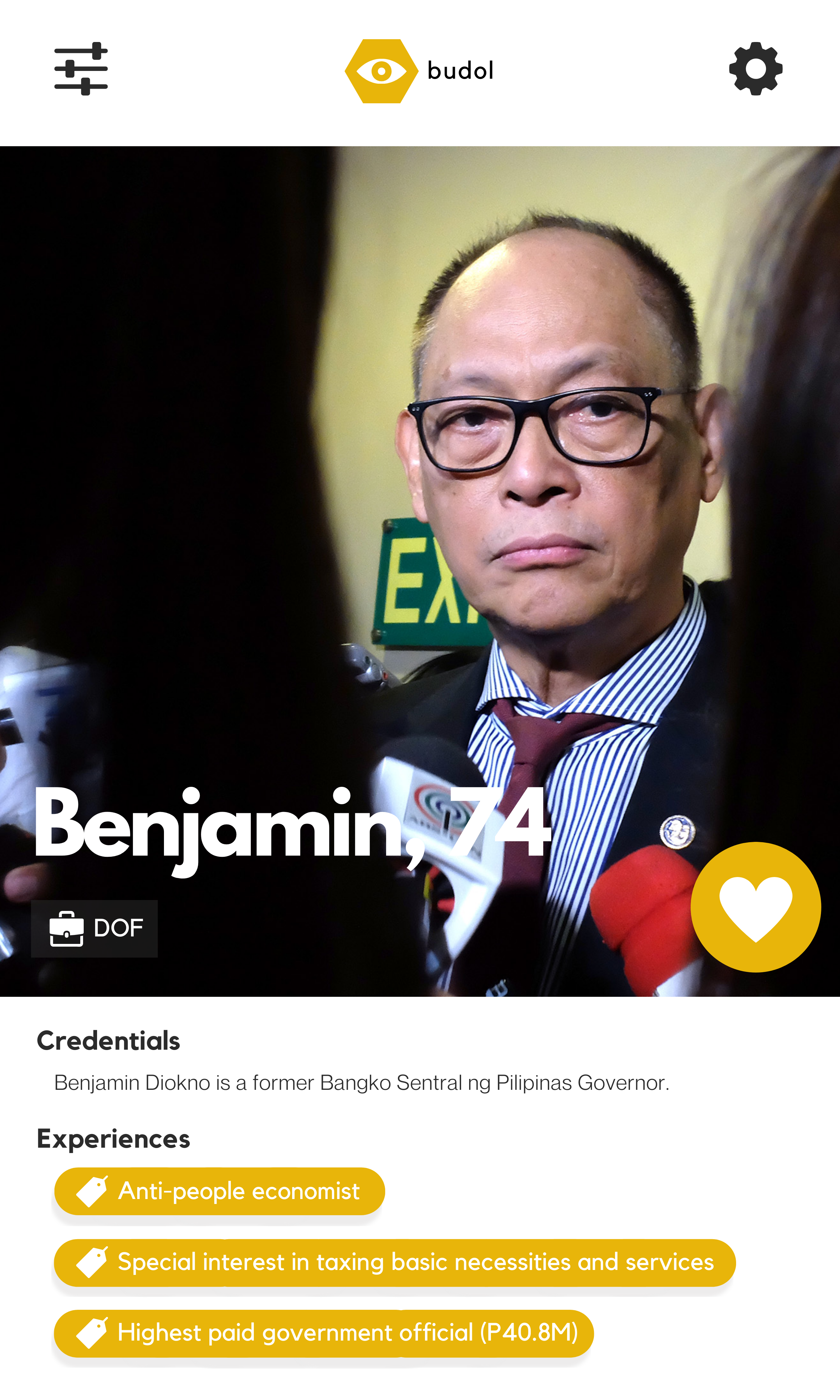
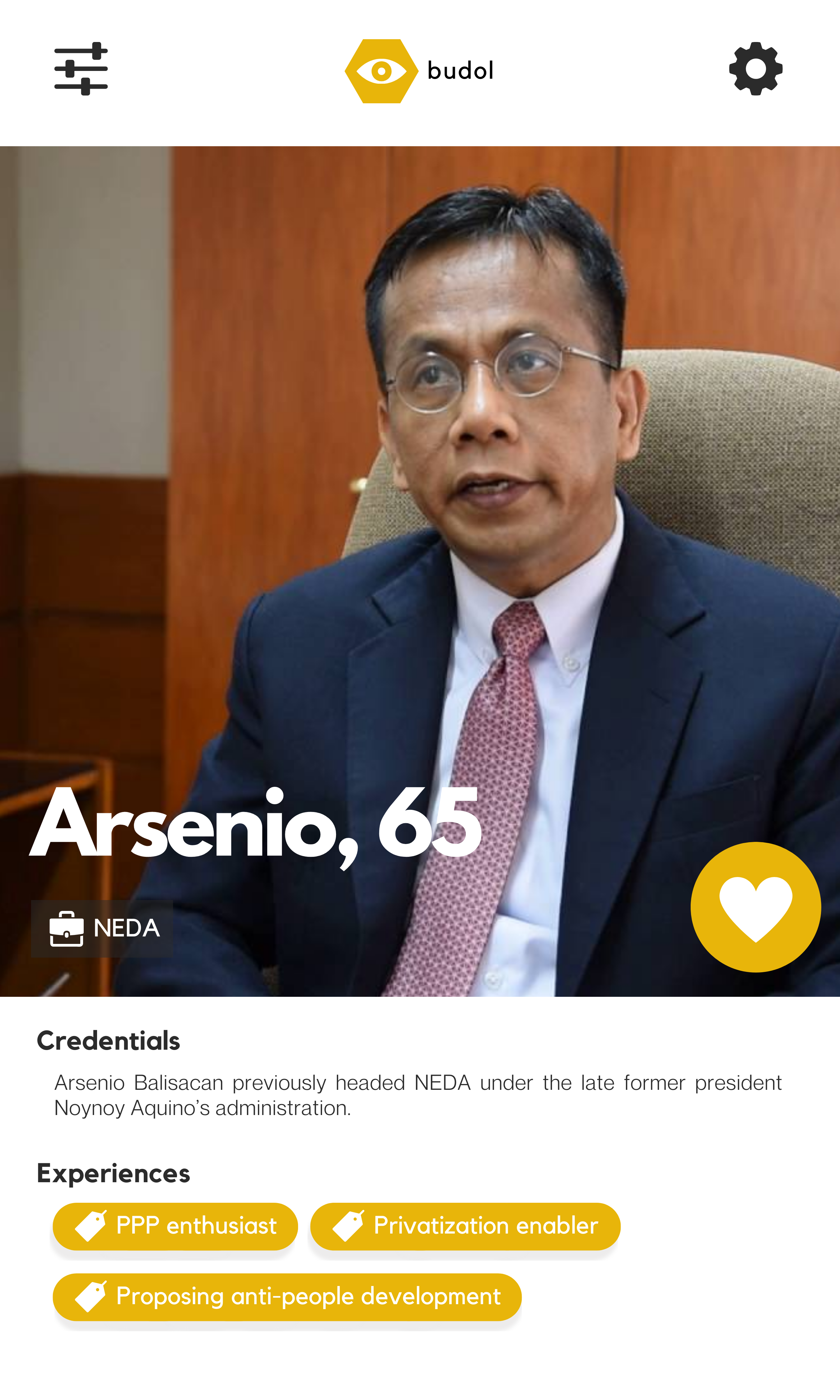
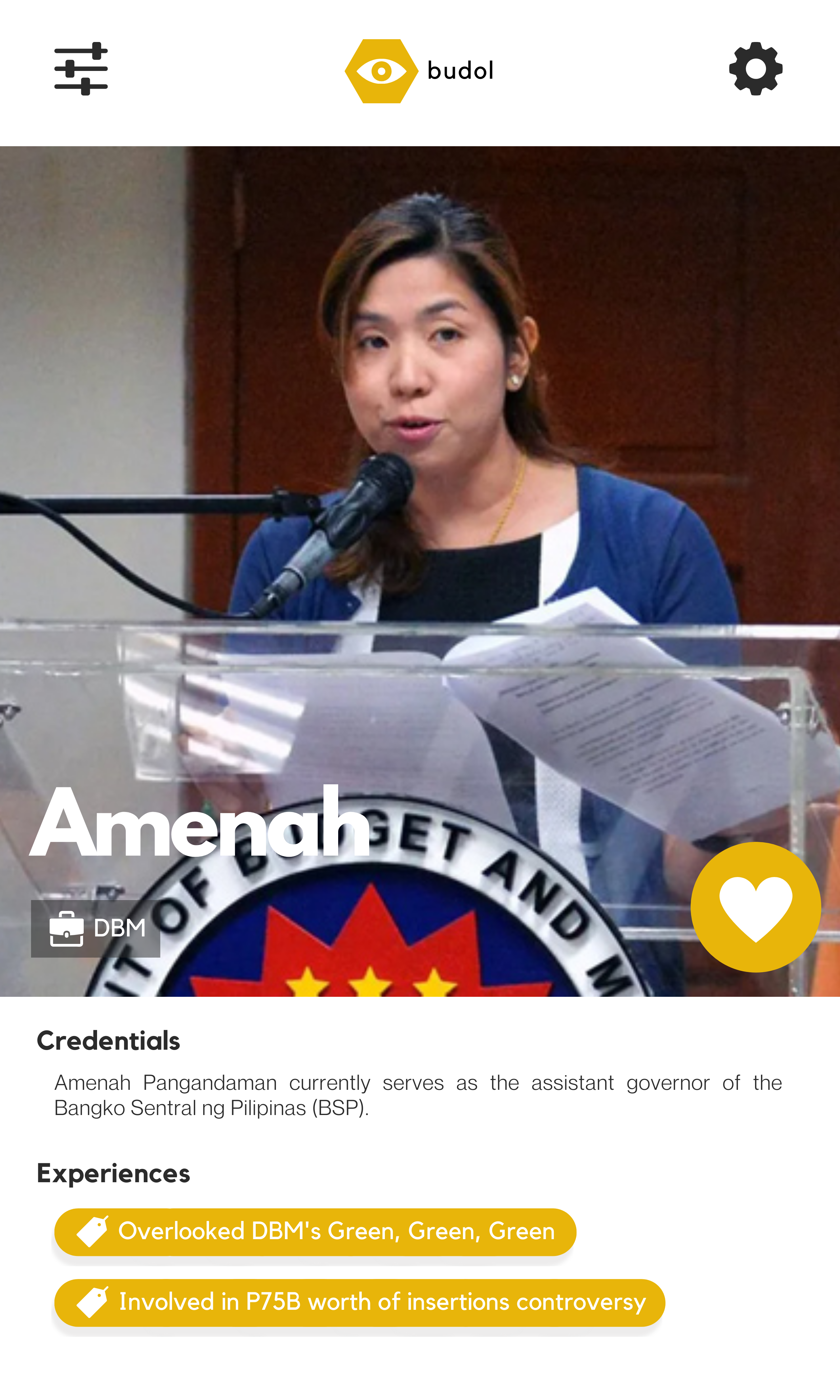
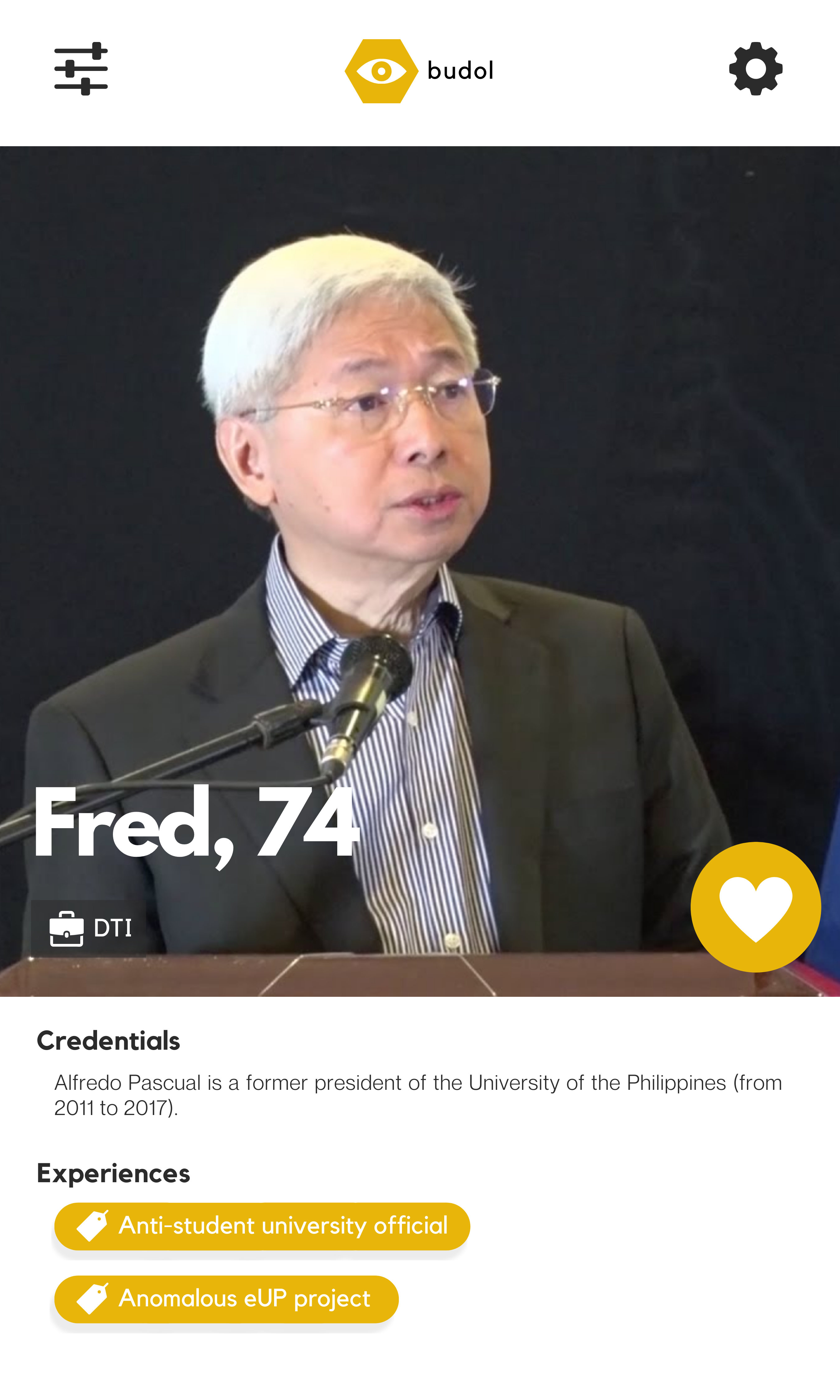
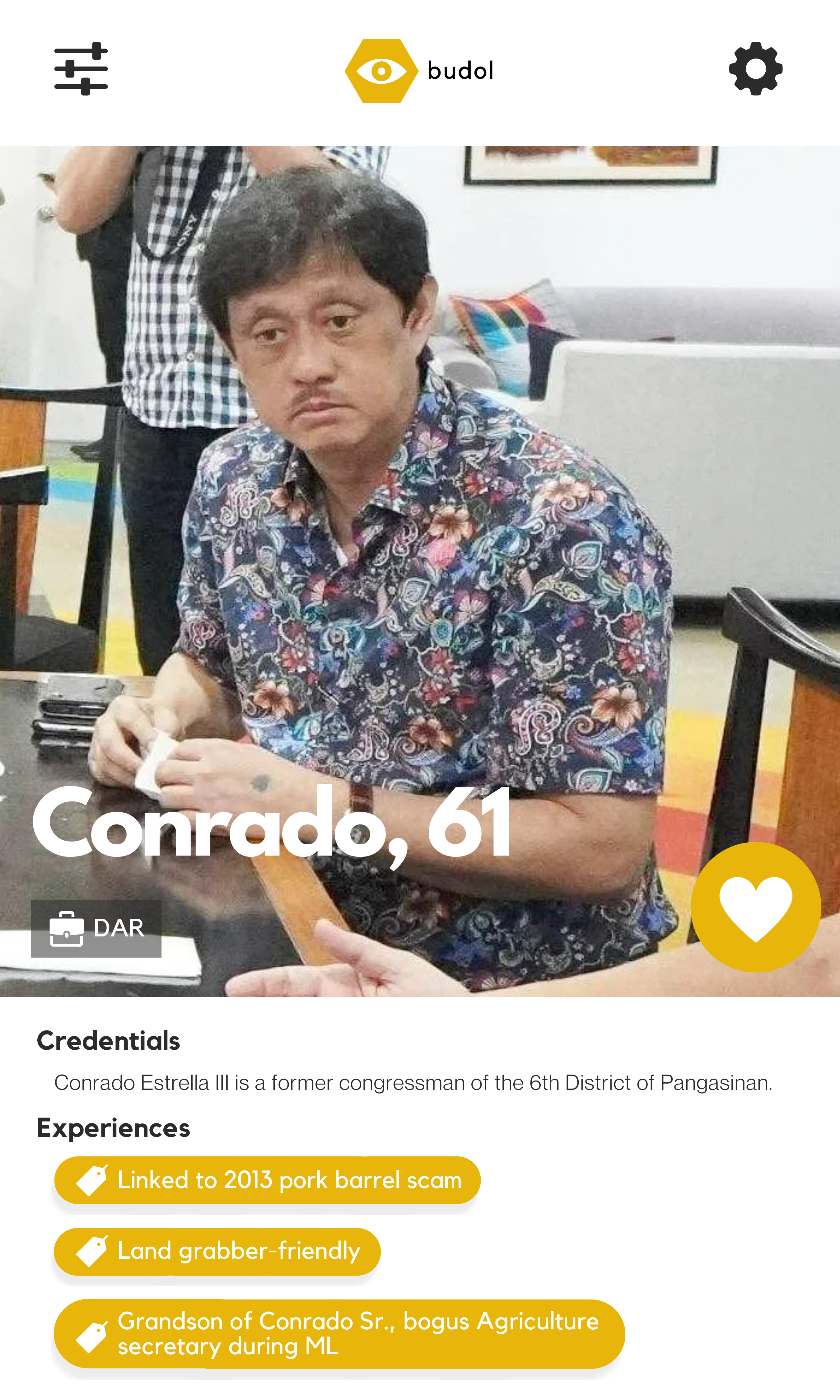

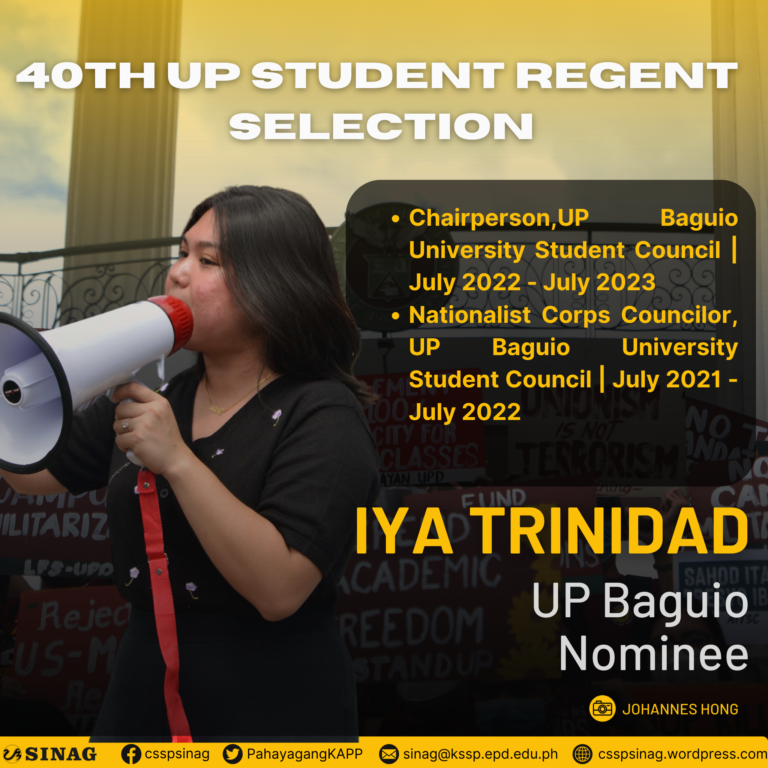
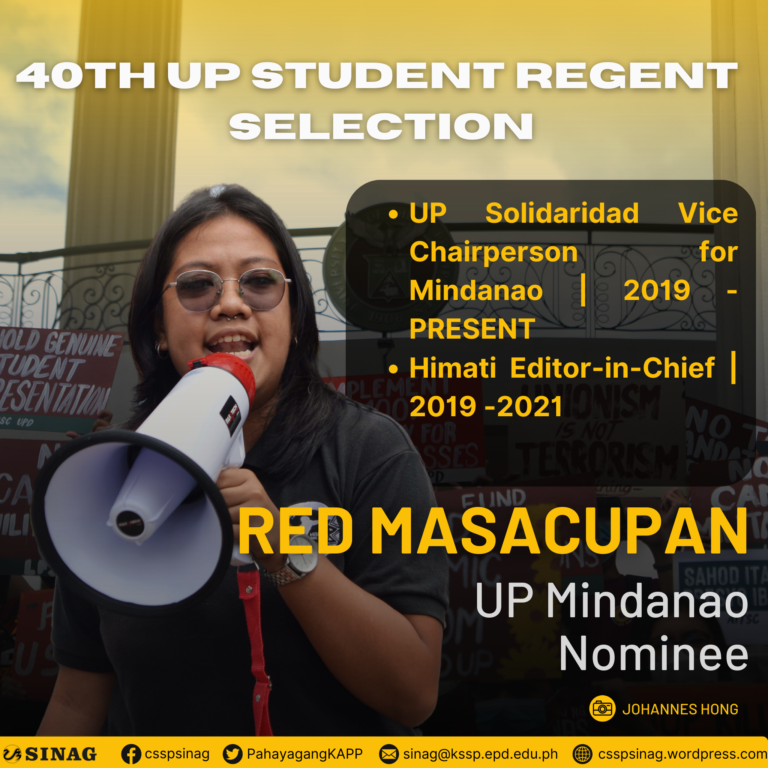
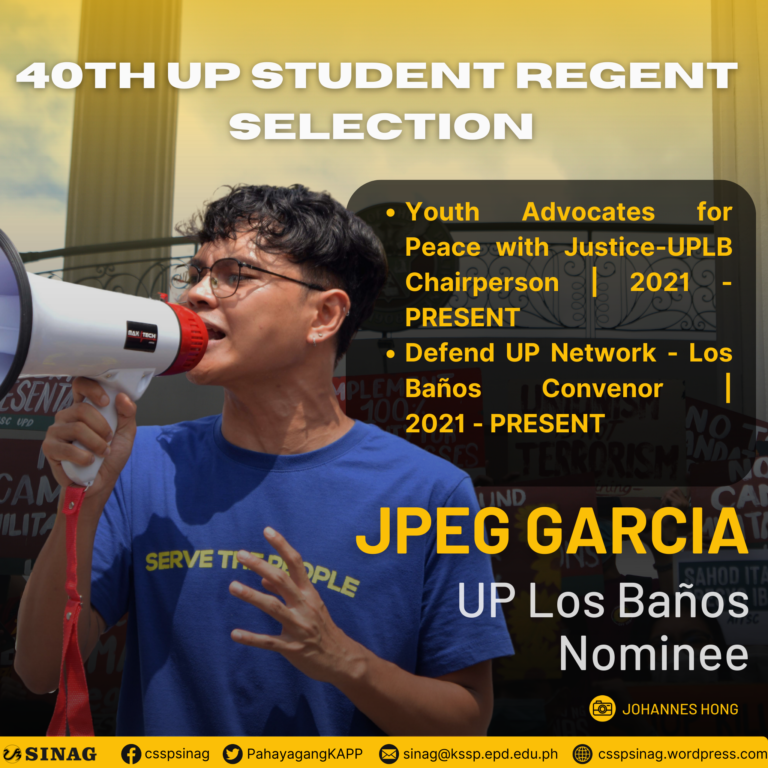

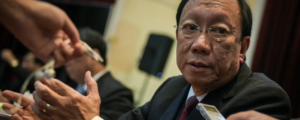
May I have information on the topic of your article? http://www.hairstylesvip.com